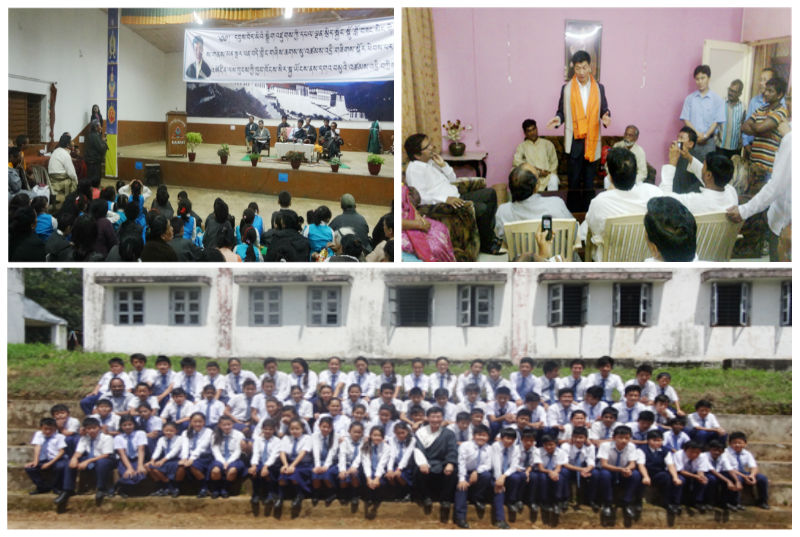 Dharamshala: The Tibetan people's unity and concerted effort played a key role in sustaining and strengthening the Tibetan administration following the historic devolution of His Holiness the Dalai Lama's political authority to the democratically-elected leadership, said Dr Lobsang Sangay, who completes his second term on 8 August.
Dharamshala: The Tibetan people's unity and concerted effort played a key role in sustaining and strengthening the Tibetan administration following the historic devolution of His Holiness the Dalai Lama's political authority to the democratically-elected leadership, said Dr Lobsang Sangay, who completes his second term on 8 August.
"Two years ago, His Holiness the Dalai Lama announced his decision to devolve his complete political authority to the elected Tibetan leadership to bring about complete democratisation of our polity. His decision naturally brought a great deal of concern among us, but we have put our shoulder to the wheel to move forward," Sikyong said in his public talks at Tibetan settlements in Bhandara, Mainpat and Odhisha in India from 1-5 August.
"When we look back at the last two years, there has been a real sense of stability among the Tibetan people. This has happened not due to something that the six people in the Kashag have done. The main factor behind this is the Tibetan people's effort to take collective responsibility to follow the vision and guidance of His Holiness the Dalai Lama," he said.
"It has also sent a clear message to hardliners in the Chinese government that the Tibetan administration would stay alive and strong until the issue of Tibet is resolved," he added.
Sikyong said the devolution process had also raised concerns among Tibetans inside Tibet. "I want to tell them that I have been able to highlight the issue of Tibet at various international forum and meet with a number of key officials. These officials highly admire His Holiness the Dalai Lama's decision and express their continued support until a lasting solution is found to the issue of Tibet," he said.
According to the Central Tibetan Administration, Sikyong visited Tibetan schools and monasteries during his visits.
Sikyong also met with members of Tibet support groups and the media in Nagpur before starting his visit to the three settlements. He spoke to senior functionaries and members of RSS, Bharat Tibbat Sahyog Manch and Bharat Tibet Mitra Sang.
During his meeting with the media, Sikyong said: "India and China did not share common border until 1959. India's national security is linked to Tibet. India's support for Tibet as an autonomous buffer zone is in the best interest of all parties."
Sikyong also Deekshabhoomi and paid respects to Dr B R Ambedkar, the chairman of India's constitutional drafting committee. Addressing a gathering of Tibet supporters, Sikyong said: "India is land of Buddha and is holy for us Tibetans. The age-old ties between the two remain and we look towards India for protection and support."


![Tibet has a rich history as a sovereign nation until the 1950s when it was invaded by China. [Photo: File]](/images/stories/Pics-2024/March/Tibet-Nation-1940s.jpg#joomlaImage://local-images/stories/Pics-2024/March/Tibet-Nation-1940s.jpg?width=1489&height=878)















